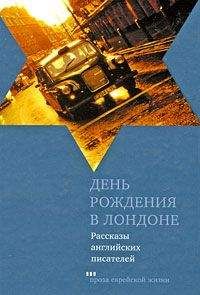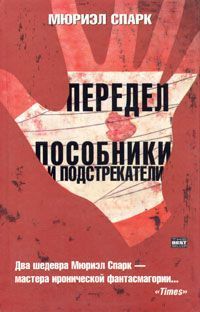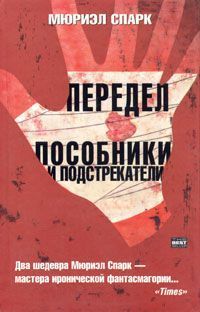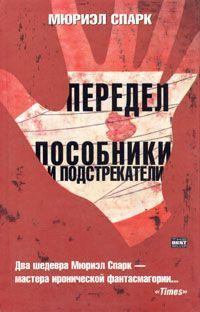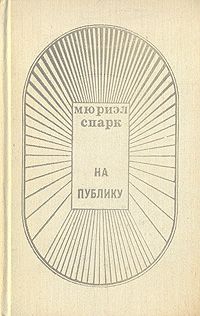Мюриэль Спарк - Английский язык с Мюриэль Спарк (рассказы)
He picked her up at four o'clock on Sunday.
"Mother's looking forward to seeing you," he said. "She hopes you will stay for supper."
'"You won't have to go out, will you, Richard?"
"Not tonight, no."
But he did have to go out to keep an appointment of which his mother reminded him immediately after tea. He had smiled at his mother and said, "Thanks."
Trudy saw the photograph album (Труди посмотрела семейный альбом с фотографиями), then she heard how Mrs. Seeton had met Richard's father in Switzerland (затем она услышала /историю/ о том, как миссис Ситон познакомилась с отцом Ричарда в Швейцарии), and what Mrs. Seeton had been wearing at the time (и во что миссис Ситон была одета в тот момент; to wear smth — бытьодетым/вочто-либо/,носить).
At half past six the supper party arrived (в половине седьмого прибыли гостьи к ужину; party — вечеринка). These were three women, including Gwen (это были три женщины, включая Гвен). The one called Grace was quite pretty (одна /из них/, по имени Грейс, была очень хорошенькой; pretty — милый, прелестный, привлекательный), with a bewildered air (немного смущенная; bewildered — озадаченный, сбитыйстолку; air — воздух, атмосфера; манерадержаться). The one called Iris was well over forty (другой, по имени Айрис, было хорошо за сорок) and rather loud in her manner (и она была достаточно шумливой; loud — громкий, звучный, крикливый).
"Where's Richard tonight (и где же Ричард сегодня вечером), the old cad (старый бродяга; cad — грубиян, хам, скотина)?" said Iris.
"How do I know (откуда мне знать)?" said his mother (сказала его мать) "Who am I to ask (кто я такая, чтобы спрашивать)?"
"Well, at least he's a hard worker during the week (ну, по крайней мере, он трудяга всю неделю; to work hard — многоработать). A brilliant teacher (выдающийся педагог; brilliant — блестящий, сверкающий)," said doe-eyed Grace (сказала волоокая Грейс; doe — самка/напримероленя/).
"Middling as a schoolmaster (и посредственность как директор школы; middling— средний, сносный, второсортный)," Gwen said.
"Oh, Gwen! Look how long he's held down the job (посмотри, как он долго удерживается в этой должности; toholddownajob— не потерять должность, место)," his mother said.
"I should think (я думаю)," Grace said, "he's wonderful with the boys (он очень ладит с мальчиками; wonderful— удивительный, поразительный)."
"Those Shakespearean productions (те постановки Шекспира; production— производство; постановка пьесы) at the end of the summer term (в конце летнего семестра; summerterm — c24 июня по 29 сентября) are really magnificent (на самом деле великолепны)," Iris bawled (прокричала Айрис; tobawl— вопить, выкрикивать). "I’ll hand him that (надо отдать ему должное; tohand— передавать, дотрагиваться; отдавать должное), the old devil (старый черт)."
"Magnificent (великолепны)," said his mother. "You must admit, Gwen — (ты должна признать, Гвен)."
"Very middling performances (очень посредственные постановки)," Gwen said.
"I suppose you are right (я полагаю, что ты права), but, after all, they are only schoolboys (но, в конце-то концов, они всего лишь школьники). You can't do much with untrained actors (вряд ли можно достичь: «сделать» много с непрофессиональными актерами; (un)trained — (не)обученный, (не)квалифицированный). Gwen," said Mrs. Seeton very sadly (сказала миссис Ситон очень печально).
bewildered [bI'wIldqd] brilliant ['brIlIqnt] middling ['mIdlIN]
magnificent [mxg'nIfIs(q)nt]
Trudy saw the photograph album, then she heard how Mrs. Seeton had met Richard's father in Switzerland, and what Mrs. Seeton had been wearing at the time.
At half past six the supper party arrived. These were three women, including Gwen. The one called Grace was quite pretty, with a bewildered air. The one called Iris was well over forty and rather loud in her manner.
"Where's Richard tonight, the old cad?" said Iris.
"How do I know?" said his mother "Who am I to ask?"
"Well, at least he's a hard worker during the week. A brilliant teacher," said doe-eyed Grace.
"Middling as a schoolmaster," Gwen said.
"Oh, Gwen! Look how long he's held down the job," his mother said.
"I should think," Grace said, "he's wonderful with the boys."
"Those Shakespearean productions at the end of the summer term are really magnificent," Iris bawled. "I’ll hand him that, the old devil."
"Magnificent," said his mother. "You must admit. Gwen —"
"Very middling performances," Gwen said.
"I suppose you are right, but, after all, they are only schoolboys. You can't do much with untrained actors, Gwen," said Mrs. Seeton very sadly.
"I adore Richard (я обожаю Ричарда)," Iris said, "when he's in his busy, occupied mood (/особенно/ когда он в своем занятом, озабоченном расположении духа). He's so (он такой) —"
"Oh, yes," Grace said, "Richard is wonderful (Ричард великолепен) when he's got a lot on his mind (когда он погружен в раздумья: «он имеет много в мыслях»; on one’s mind — науме, вмыслях)."
"I know (я знаю)," said his mother. "There was one time (было время) when Richard had just started teaching (когда Ричард только начал преподавать) — I must tell you this story (я должна рассказать вам эту историю) — he …"
Before they left Mrs. Seeton said to Trudy (перед уходом: «перед тем, как они ушли» миссис Ситон сказала Труди). "You will come with Gwen next week, won't you (ты же придешь с Гвен на следующей неделе, да)? I want you to regard yourself as one of us (я бы хотела, чтобы ты почувствовала себя одной из нас; toregard— рассматривать, считать). There are two other friends of Richard's (есть еще две другие подруги Ричарда) I do want you to meet (с которыми я бы хотела тебя познакомить). Old friends (старые подруги)."
On the way to the bus Trudy said to Gwen (по дороге к автобусу Труди спросила у Гвен), "Don't you find it dull going to Mrs. Seeton's every Sunday (тебе не скучно: «ты не находишь это скучным» ходить к миссис Ситон каждое воскресенье)?"
"Well, yes, my dear young thing, and no (ну, да, моя дорогая молодая подруга: «юное создание», и нет). From time to time one sees a fresh face (время от времени можно встретить новое: «свежее» лицо), and then it's quite amusing (и тогда это даже забавно)."
"Doesn’t Richard ever stay at home on a Sunday evening (неужели Ричард никогда не остается дома воскресным вечером; ever— когда бы то ни было, всегда)?"
"No, I can't say he does (нет, не могу сказать, что он /остается/: «делает это»). In fact, he's very often away for the whole week-end (на самом деле, он очень часто отсутствует все выходные). As you know (как ты /сама/ знаешь)."
"Who are these women (кто эти женщины)?" Trudy said, stopping in the street (спросила Труди, останавливаясь /посреди/ улицы).
"Oh, just old friends of Richard's (о, просто старые знакомые Ричарда)."
"Do they see him often (а они часто его видят)?"
"Not now (теперь нет). They've become members of the family (они стали членами семьи)."
regard [rI'gQ: d] fresh [freS] amusing [q'mju: zIN]
"I adore Richard," Iris said, "when he's in his busy, occupied mood. He's so —"
"Oh, yes," Grace said, "Richard is wonderful when he's got a lot on his mind."
"I know," said his mother. "There was one time when Richard had just started teaching — I must tell you this story — he…"
Before they left Mrs. Seeton said to Trudy. "You will come with Gwen next week, won't you? I want you to regard yourself as one of us. There are two other friends of Richard's I do want you to meet. Old friends."
On the way to the bus Trudy said to Gwen, "Don't you find it dull going to Mrs. Seeton's every Sunday?"
"Well, yes, my dear young thing, and no. From time to time one sees a fresh face, and then it's quite amusing."
"Doesn't Richard ever stay at home on a Sunday evening?"
"No, I can't say he does. In fact, he's very often away for the whole week-end. As you know."
"Who are these women?" Trudy said, stopping in the street.
"Oh, just old friends of Richard's."
"Do they see him often?"
"Not now. They've become members of the family."
Темные Очки
The Dark Glasses
Coming to the edge of the lake (подойдя к берегу озера; edge — острие, кромка, край) we paused to look at our reflections in the water (мы остановились, чтобы посмотреть на свое: «наши» отражение в воде; to pause — сделатьпаузу, перерыв, остановиться, reflection — отражение, отблеск). It was then I recognized her (именно тогда я узнала ее; torecognize— узнавать, опознавать, признавать) from the past (из прошлого) her face looking up from the lake (ее лицо выглядывало из озера). She had not stopped talking (она не переставая говорила).
I put on my dark glasses (я надела /мои/ темные очки; toputon— надевать) to shield my eyes from the sun (чтобы защитить свои глаза от солнца; toshield— защищать, прикрывать, заслонять) and conceal my recognition from her eyes (и скрыть то, что я ее узнала: «мое узнавание» от ее глаз; toconceal— прятать, укрывать, скрывать).
"Am I boring you (я вас утомляю; tobore— надоедать, наскучить)?" she said (сказала она).
"No, not a bit (нет, совсем нет; abit— немного, чуть-чуть). Dr Gray (доктор Грэй; Dr. =Doctor— доктор, ученая степень)."
“Sure (точно: «уверены»)?"
It is discouraging (это обескураживает; todiscourage— приводить в уныние; препятствовать) to put on sun glasses (когда надевают солнечные очки; glasses— очки, glass— стекло, стеклянная посуда) in the middle of someone's intimate story (/прямо/ посередине чьей-нибудь очень личной истории; intimate— сокровенный, интимный, личный). But they were necessary (но они были необходимы), now that I had recognized her (теперь, когда я узнала ее) and was excited (и была взволнована), and could only honourably hear what she had to say from a point of concealment (и только скрыв, кто я такая, я могла слушать ее с достоинством: «и могла только честно слушать, что она хотела мне сказать, с позиции сокрытия /факта/; honourably— честно, благородно, с честью, apoint— точка, пункт, суть, цель).
recognized ['rekqgnaIzd] discouraging [dIs'kArIGIN] sunglasses ['sAn" glQ: sIz]
honourably ['On(q)rqblI]
Coming to the edge of the lake we paused to look at our reflections in the water. It was then I recognized her from the past her face looking up from the lake. She had not stopped talking.
I put on my dark glasses to shield my eyes from the sun and conceal my recognition from her eyes.
"Am I boring you?" she said.
"No, not a bit. Dr Gray."
"Sure?"
It is discouraging to put on sun glasses in the middle of someone's intimate story But they were necessary, now that I had recognized her and was excited, and could only honourably hear what she had to say from a point of concealment.
